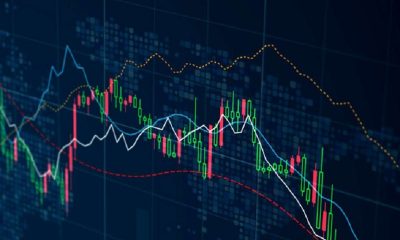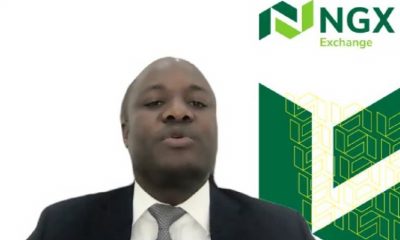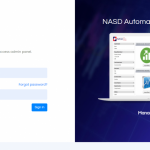Economy
ETDs Will Deepen Africa’s Position in Global Financial Market—NGX
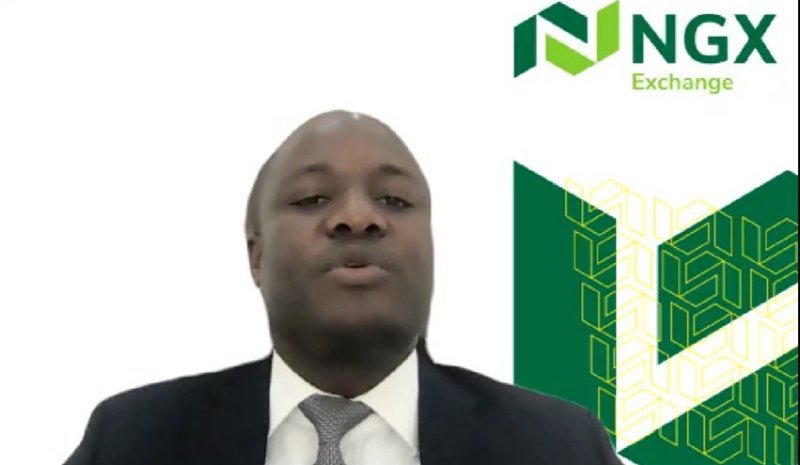
By Aduragbemi Omiyale
The Chief Executive Officer of the Nigerian Exchange (NGX) Limited, Mr Temi Popoola, has expressed optimism that the launch of the Exchange Traded Derivatives (ETDs) in the Nigerian capital market will deepen Africa’s position in the global financial market.
He said this at the launch of NG Clearing Limited as Central Counterparty (CCP) clearing house in Nigeria on Thursday, December 9, 2021.
Derivatives are financial instruments most popularly used to reduce or hedge risks and are also believed to cover downside risks when large exposure exists in a portfolio long on stocks.
Among the different commonly used financial instruments, index derivatives have raised a great deal of attention in researchers around the world.
Index derivatives exist for all asset classes, and over time their use has grown exponentially for a variety of purposes. The ability to leverage by investing a small amount to gain exposure to a much larger investment is the key benefit of index derivatives.
While index futures have a symmetric impact on portfolio returns, index options can have an asymmetric impact. That said, both are valuable, cost-efficient tools for a number of reasons for a portfolio manager.
For example, if an investor has shorted a large number of single securities, a single index call option can provide a great hedge against an inverse-market move.
However, if an investor has large cash holdings that he or she wants to use for buying stocks after further research, a quick and easy way to deploy the funds is to go long on an index futures contract.
This provides the exposure the investor is ultimately looking to gain, buys time to do the research, costs far less and manages the price impact of large trading in a short time frame. Small purchases over time reduce the effect on prices and will not create a market impact.
Similarly, when a large number of securities need to be sold off, buying index futures gives time to ease in the selling over time and dampens price pressure. As cash positions are built over time, the index future maintains the overall security exposure until further investment decisions are made.
This approach makes sense for both active and passive investors, where large trades can be counterbalanced with the use of index futures or options bought at a low cost by an investor to avoid having large price-impacting shifts in an exposure.
At the launch of NG Clearing last week, Mr Popoola said, “As a multi-asset exchange, NGX recognises the importance of a well-developed derivatives market, and we have worked hard to put the right regulatory and technology framework in place to support the launch of a standardised ETDs market.
“Our efforts will be further supported by NG Clearing, the best in class CCP and Clearing House. These are indeed exciting times for the Nigerian capital market and I am excited about the prospect of deepening Africa’s position in the global financial market with the imminent launch of ETDs.”
Reports from NGX have shown that upon the introduction of ETDs in the market, index futures will be rolled out in the first year, while other products will follow as the market evolves in line with market readiness and demand.
It would be recalled that NGX recently received approval for seven derivatives contracts from the Securities and Exchange Commission (SEC) including the Access Bank Plc Stock Futures, Dangote Cement Plc Stock Futures, Guaranty Trust Bank Plc Stock Futures, MTN Nigeria Communications Plc Stock Futures, Zenith Bank Plc Stock Futures, NGX 30 Index Futures and NGX Pension Index Futures.
Ultimately, the derivatives market is expected to complement existing cash markets and provide investors and other market players with the necessary tools for tactical asset allocation, risk management and cost management for effective portfolio management. It will, therefore, be interesting to see how the market responds once ETDs are introduced in the near term.
Economy
NASD Exchange in Red for Third Straight Session After 0.15% Fall
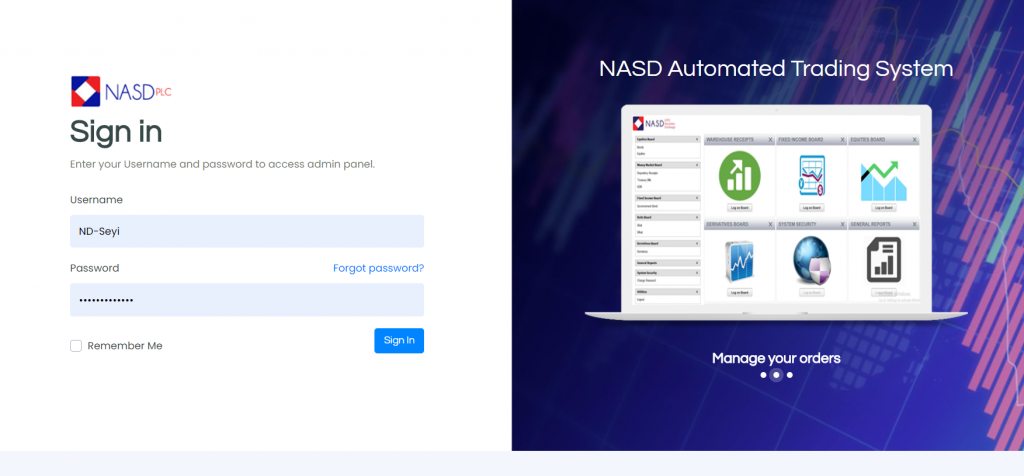
By Adedapo Adesanya
For the third straight session, the NASD Over-the-Counter (OTC) Securities Exchange closed bearish, further losing 0.15 per cent on Thursday amid weak demand for unlisted stocks.
During the session, the NASD Unlisted Security Index (NSI) declined by 5.70 points to 3,908.67 points from 3,914.37 points, and the market capitalisation lost N3.41 billion to end N2.338 trillion compared with the N2.342 trillion it ended on Wednesday.
The alternative stock exchange suffered a loss despite having more price gainers than price losers, with five for the former and four for the latter.
Okitipupa Plc lost N10.00 to close at N250.00 per unit versus midweek’s N260.00 per unit, Central Securities Clearing System (CSCS) Plc depreciated by N4.98 to N64.92 per share from N69.90 per share, Industrial and General Insurance (IGI) Plc dropped 4 Kobo to sell at 50 Kobo per unit compared with the previous day’s 54 Kobo per unit, and Acorn Petroleum Plc moderated by 1 Kobo to N1.32 per share from N1.33 per share.
Conversely, 11 Plc gained N13.65 to quote at N276.55 per unit versus the preceding session’s N263.00 per unit, FrieslandCampina Wamco Nigeria Plc appreciated by N6.10 to N84.15 per share from N78.05 per share, Food Concepts Plc expanded by 32 Kobo to N3.60 per unit from N3.28 per unit, Geo-Fluids Plc improved by 30 Kobo to N3.60 per share from N3.30 per share, and First Trust Mortgage Bank Plc increased by 10 Kobo to N1.09 per unit from 99 Kobo per unit.
Yesterday, the volume of transactions surged 2,797.1 per cent to 45.8 million units from 1.6 million units, the value of transactions jumped 315.2 per cent to N208.2 million from N50.1 million, and the number of deals soared 18.2 per cent to 39 deals from 33 deals.
At the close of business, CSCS Plc remained the most active stock by value (year-to-date) with 32.6 million units worth N1.9 billion, followed by Geo-Fluids Plc with 117.4 million units valued at N463.1 million, and Resourcery Plc with 1.05 billion units exchanged for N408.6 million.
Resourcery Plc ended the session as the most traded stock by volume (year-to-date) with 1.05 billion units sold for N408.6 million, trailed by Geo-Fluids Plc with 117.4 million exchanged for N463.1 million, and CSCS Plc with 32.6 million units traded for N1.9 billion.
Economy
Bulls Reaffirm Control of Nigeria’s Stock Exchange With 1.39% Surge

By Dipo Olowookere
Sell-offs in energy stocks could not bring down Nigeria’s stock exchange on Thursday, as the gains recorded by the others sustained the upward momentum.
Yesterday, the Nigerian Exchange (NGX) Limited further appreciated by 1.39 per cent on the back of a strong appetite for domestic equities, which are gaining traction among investors.
The banking index grew by 2.63 per cent, the consumer goods sector appreciated by 054 per cent, the insurance counter improved by 0.50 per cent, and the industrial goods space rose by 0.29 per cent, while the energy industry fell by 0.11 per cent.
When the bourse closed for the day, the All-Share Index (ASI) pointed northwards by 2,645.61 points to settle at 193,073.57 points compared with the previous day’s 190,427.96 points, and the market capitalisation soared by N1.698 trillion to N123.934 trillion from N122.236 trillion.
The trio of Deap Capital, Okomu Oil, and Fortis Global Insurance appreciated by 10.00 per cent each to N6.93, N1,459.70, and 55 Kobo apiece, while the duo of Infinity Trust Insurance and Zichis gained 9.96 per cent each to settle at N14.35, and N15.79, respectively.
On the flip side, the quartet of Tripple G, Multiverse, Secure Electronic Technology, and McNichols lost 10.00 per cent each to quote at N5.40, N25.20, N1.80, and N8.28, respectively, while Meyer declined by 9.80 per cent to N20.70.
Business Post reports that there were 52 appreciating equities and 26 depreciating equities on Thursday, showing a positive market breadth index and strong investor sentiment.
The busiest stock yesterday was Japaul with 80.1 million units valued at N293.3 million, Secure Electronic Technology sold 71.8 million units worth N136.5 million, Mutual Benefits transacted 58.7 million units for N277.6 million, Zenith Bank exchanged 53.2 million units valued at N4.5 billion, and GTCO traded 52.6 million units worth N6.2 billion.
Unlike the preceding session, the activity chart was in red after market participants transacted 898.5 million shares for N38.5 billion in 61,953 deals compared with the 3.7 billion shares worth N61.9 billion traded in 68,693 deals at midweek, implying a decline in the trading volume, value, and number of deals by 75.72 per cent, 37.80 per cent, and 9.81 per cent apiece.
Economy
Naira Fall 0.24% to N1,341/$1 at Official FX Window

By Adedapo Adesanya
The Naira depreciated further against the Dollar in the Nigerian Autonomous Foreign Exchange Market (NAFEX) on Thursday, February 19, by N3.24 or 0.24 per cent to N1,341.35/$1 from the N1,338.11/$1 it was traded a day earlier.
However, it improved its value against the Pound Sterling in the official market during the session by N11.16 to sell for N1,805.86/£1 compared with the previous day’s N1,817.02/£1, and gained N7.83 against the Euro to close at N1,577.29/€1 versus Wednesday’s closing price of N1,585.12/€1.
At the GTBank forex counter, the Naira lost N2 against the greenback to settle at N1,349/$1 compared with the N1,347/$1 it was exchanged at midweek, and at the black market, the exchange rate remained unchanged at N1,370/$1.
The performance of the domestic currency in the spot market was weak yesterday amid prevailing dynamics of supply and demand, as the Central Bank of Nigeria (CBN) maintains its efforts to stabilise the foreign exchange market. The exchange rate remained within the expected range, lifted by strong forex inflows and central bank dollar sales to Bureaux de Change (BDC) operators.
Meanwhile, the cryptocurrency market remained bearish, as there was continued caution in coins amid shaky interest in the digital assets.
On the policy front, there were tentative signs of progress on the digital asset market structure bill. The White House hosted talks between crypto industry representatives and bankers, which yielded incremental movement, though no compromise has yet emerged.
Ripple (XRP) declined by 1.7 per cent to $1.39, Litecoin (LTC) went down by 1.3 per cent to $52.46, Cardano (ADA) dropped 0.8 per cent to trade at $0.2715, Dogecoin (DOGE) retreated by 0.7 per cent to $0.0978, and Ethereum (ETH) contracted by 0.2 per cent to $1,943.30.
On the flip side, Solana (SOL) appreciated by 0.8 per cent to $82.12, Bitcoin improved its value by 0.7 per cent to $66,854.86, and Binance Coin (BNB) chalked up 0.1 per cent to sell for $605.58, while the US Dollar Tether (USDT) and the US Dollar Coin (USDC) closed flat at $1.00 each.
-

 Feature/OPED6 years ago
Feature/OPED6 years agoDavos was Different this year
-
Travel/Tourism10 years ago
Lagos Seals Western Lodge Hotel In Ikorodu
-

 Showbiz3 years ago
Showbiz3 years agoEstranged Lover Releases Videos of Empress Njamah Bathing
-

 Banking8 years ago
Banking8 years agoSort Codes of GTBank Branches in Nigeria
-

 Economy3 years ago
Economy3 years agoSubsidy Removal: CNG at N130 Per Litre Cheaper Than Petrol—IPMAN
-

 Banking3 years ago
Banking3 years agoSort Codes of UBA Branches in Nigeria
-

 Banking3 years ago
Banking3 years agoFirst Bank Announces Planned Downtime
-

 Sports3 years ago
Sports3 years agoHighest Paid Nigerian Footballer – How Much Do Nigerian Footballers Earn






